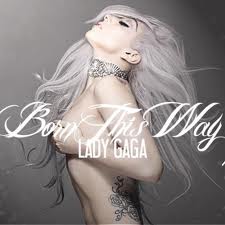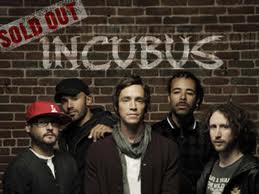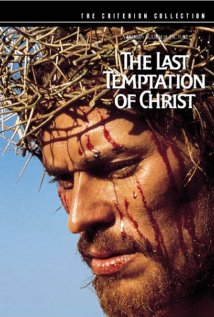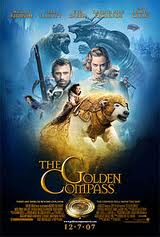As the war between the CCP and the CBCP reached fever pitch during the past few days, culminating in the eventual closure of an artist’s exhibit deemed ‘blasphemous‘, it has effectively polarized those involved into two camps: those who say that freedom of artistic expression should supersede religious sacred cows or vice-versa. If you were an artist, then you’d support the freedom to express yourself. If you were the conservative type, then you’d prefer that religious symbolism be given special immunity against the more radical artistic interpretations.
But what about those of us on the outside – the regular Juan (or Maria…or anyone in between, for that matter) who doesn’t go to artsy-fartsy art museums and discuss the merits of an artist’s work all day? Why should it even matter to us? Shouldn’t it be left to the art connoisseurs and bishops to duke it out till their lungs explode?
The reason is simple: because art (and artistic expression) is not only limited to painting and sculptures.
.
Censorship in Music.
.
Early this year, while the rest of the world celebrated the launch of Lady Gaga’s newest pop anthem ‘Born This Way’, a song about acceptance and embracing diversity, Malaysian authorities decided to ban it on the grounds of possibly offending religious feelings.
Sounds familiar?
Never mind the fact that not everyone in Malaysia is Muslim, or even if you were Muslim but were open-minded enough not to be offended by the sentiments of the song, the ruling applied to everyone. Public access to the song was banned for everyone, regardless of belief.
That’s the problem with censorship. It’s a blanket restriction that applies to everyone. You don’t the get the choice of watching or not watching, listening or not listening, buying or not buying it because you can’t. You don’t get a choice in the matter, you simply can’t.
.
Can’t, can’t, can’t. Period.
.
Somebody else makes the decision of what you can or can’t watch. Even if you’ve read the reviews, heard a clip, or watched the trailer then felt that you won’t be offended by it, you still can’t. It’s not a simple matter of simply putting up a sign that goes:
“Warning! Contains images of excessive violence, nudity, or profanity that may be offensive to some people.”
Censorship takes the choice away from you. What is offensive to some may not be to other people. But if you let a few people make that decision for everyone else, then you’ve lost the very essence of a free society. The issue is very simple: If you don’t like it, then don’t watch it. If a song has risqué lyrics that offend you, then don’t listen to it.
In all likelihood, with all the various forms of media out there, there are more things you’ll not like (or at least be apathetic to) than the ones you’ll actually like. But don’t take the choice away from everyone else. Artistic expression is a highly subjective matter and everyone should at least be free to make up his or her own mind. If you are offended by it, then don’t see it. How much more simple can it get? If an artwork is controversial in nature, put a warning, a disclaimer, or even an age restriction. But unless something is unanimously considered to be hate-speech, total censorship is not the way to go.
Lady Gaga isn’t alone in her censorship woes. Without even going to the realm of Heavy Metal music, mainstream Rock and Rap are already the frequent targets of conservative groups seeking to shut them down for their provocative or liberal lyrics or messages.
A few weeks back, there was a protest action mounted by a conservative group to block the Manila concert of Incubus because of their perceived demonic influence.
There’s a whole bucket list of popular songs where artists have tread the fine line between “artistic expression“ and “offending religious feelings” from John Lennon to Tori Amos:
.
Censorship in Movies
.
Remember when the Da Vinci Code was the blockbuster summer movie of 2006? Everyone read the book and was eager to see it on the big screen… that is, if you weren’t living in Manila where it was banned by their ultra-moralist city officials.
So the erstwhile Manila mayor Lito Atienza had the movie not only banned in theaters, but also made the sale and distribution of the movie in optical media like DVD’s punishable by law, citing that The Da Vinci Code was “offensive to the established beliefs of the Roman Catholic Church“.
Or what about the 1994 movie Priest which also didn’t see the light of day in the Philippines because of its controversial theme of a priest wrestling with his secret homosexuality?
As works of fiction, movies like these weren’t even intentionally made to be offensive to religious belief yet still they fell to the mighty axe of Philippine censorship. But nothing tops the most glaring example of this type of overzealous censorship:
‘The Last Temptation of Christ’, arguably one of Martin Scorsese’s most controversial work likewise did not make it to Philippine cinemas because of implications of religious offense. Never mind that Scorsese himself was Catholic and never meant to create a movie offensive to his faith, it was taken as a direct attack on religion instead of an artistic interpretation of the concept of free will.
Thankfully, The Golden Compass narrowly evaded similar censorship attempts by religious groups to ban the movie because of its anti-religious sentiments (but only after so much compromise and judicious editing by the movie’s producers to tone it down. But that’s as far as it went. Because of heavy Catholic lobbying to block the production of Book 2 – The Northern Lights, the sequel will never see the light of day. That’s pre-production censorship for you.
One could only wonder what we would be missing if they also succeeded in banning Harry Potter as well because of its “blatant promotion of witchcraft and sorcery”.
Make no mistake, the outcome of the CCP versus CBCP debate can and will be used as a precedent for all future censorship battles in the Philippines on just how much control a vocal minority can exert on what the rest of us can or cannot be allowed to see, hear, or purchase. It won’t stop with mere painting or sculptures. If conservative groups here can threaten, sue, deface, or outright remove an art exhibit, what’s to stop them from doing the same thing to more commercial forms of artistic expression like movies and music?
If you don’t care as to the fate of some artist you’ve never heard of and whose work you don’t particularly appreciate, what happens if this eventually happens to an artist you do like?
–
Images from Amazon, IMDB, LILI.org, Mideastposts.com










Its been a while since I saw it but if memory serves the Priest also dealt with celibacy and the sanctity of confessions. The two priest there were refreshingly human. One is gay and the other has a woman. Of course the gay priest and the bigotry that ensued was center stage.
Great story and a lot of good questions on the Catholicism. A shame it wasn’t shown.
Anybody here views censorship as a form of indirect advertising?
that's true. Its like the 'DaVinci Code' effect – the more some people want to shut it down, the more interest is generated for it – net effect is that it got more exposure and hype than if people just left it alone to simmer in relative obscurity.
This would lead one to wonder what course Philippine history would have been taken if Ninoy Aquino wasn't gunned down. Would he be just another minor footnote in history instead of a pivotal symbol of the fight against tyranny? Funny how some things actually become more viral the more you try to suppress it.
Censorship is a security that is for everyone's innocence and of being good without having such controlled information or defiled purposes.
//Censorship is a security that is for everyone's innocence and of being good without having such controlled information or defiled purposes.//
So did you learn that from the Marcoses?
Isolation is different from censorship… Tsk-tsk-tsk…. 🙂
"As the Americans learned so painfully in Earth's final century, free flow of information is the only safeguard against tyranny. The once-chained people whose leaders at last lose their grip on information flow will soon burst with freedom and vitality, but the free nation gradually constricting its grip on public discourse has begun its rapid slide into despotism. Beware of he who would deny you access to information, for in his heart he dreams himself your master."
-Commissioner Pravin Lal, "U.N. Declaration of Rights" (Sid Meier's Alpha Centauri)
It only shows that you already are a slave to someone else.